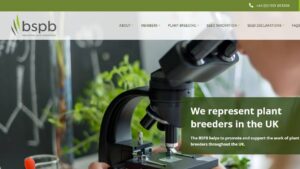Brexit – A view from business
If we needed any reminders, recent political events clearly show we live in a changing world and change can be rapid and unexpected. After a very divisive political campaign between remain and leave, the United Kingdom (UK) population voted in June 2016 to leave the European Union (EU) 52/48.
The UK is well known as a deeply democratic country and whilst the necessary checks and balances around this referendum and the scope of authority between the executive government and parliament will be tested, in the end the UK will respect the referendum result and leave the EU.
This is a new concept; nobody has done it before so what is involved, and possible outcomes, are unknowable in advance. The UK government has stated its guiding principles, such as not being within the single market, customs union, jurisdiction of the European Court of Justice (ECJ) and having domestic control over immigration from both within and outside the EU. On the other hand, the Commission, the European Parliament and EU council of member states need to also consider what type of relationship and agreements they wish to have with the UK with regard to trade and its associated legal framework. It can be expected that the EU will not wish for leaving to be an easy or painless process in order to send wider political signals. However, will need to balance this with the mutual benefits of having a constructive relationship with a large neighbouring economy. As a result, the final shape of what Brexit means for business activity will not be clear until the areas of real alignment and consensus between the UK and the EU begin to emerge from the highly charged political atmosphere surrounding the opening stages of the negotiation.
We can have hope that the negotiators fully understand over the coming years that all countries live in a risky world and therefore in the continent of Europe, we need each other economically, culturally and militarily. This is a cause for some optimism for a reasonable compromise position in the end. The only certainty we have is that this will take time. Also that the business uncertainties for agriculture and seeds resulting from the UK referendum decision will last far beyond the two year negotiating period. In the broad picture, this is complex and involves to a large extent trade, recognition of each other’s citizens’ rights and UK financial obligations towards hitherto common EU institutions and schemes. One thing is very likely that large economically vital sectors such as financial services, motor manufacturing and energy will absorb sufficient government time and resources that seeds is unlikely to figure so highly on the negotiating agenda.
As a business engaged in plant breeding and seeds, our long term objectives are to be able to supply all economically attractive markets with a pipeline of continuously improved varieties and high quality seed so we have to firstly consider what this means for our customers and consequently what it means for us.
We know from the UK government white paper released in February that in order to prevent a vacuum of legal frameworks that affect so many areas of activity, the UK government plans to enact a concept called ‘The Great Repeal Bill’ which basically adopts all extant EU legislation relevant to the UK into UK domestic legislation. This is a simple enough concept to ensure stability and confidence however, as always, real life is not so simple and adopting EU legislation falls roughly into three categories.
- Legislation the UK government wishes to adopt and can do so without establishing new structures.
- Legislation the UK government wishes to adopt but requires the establishment of new structures/organisations to implement it.
- Legislation the UK government does not wish to adopt.
So, even with such a straightforward concept, there is complexity and practical things to consider and whilst legal frameworks are expected to function fully on day 1 after leaving, after ‘the great repeal bill’ then come issue by issue domestic legislative processes.
How do we find our way through this process for agriculture and seeds? What are our possible paths? As in any business, taking a future view for strategic planning requires scenario based thinking. Trying to predict the future and gambling on having guessed right is a high risk way to build a business plan and we can look at political pundits and pollsters predictions of political elections as a good example of how difficult it can be to make correct analyses even of the relatively short term. At this time therefore, we have to consider a number of possibilities surrounding key topics that have the biggest potential to impact our business.
What is very relevant for our sector is the high degree to which the UK seeds market is connected internationally between the UK and other European countries. As an example, over 99 per cent of field crops seed certified in the UK (wheat, barley and oilseed rape) originates from breeding with an equity base in EU headquartered companies. This may look very one sided to those who wish to leave the EU and a good reason why ‘British’ companies might wish to be protected, however, here again we must consider the interconnected nature of the activity. Almost all of the EU based companies engage directly in the UK economy to achieve these results by establishing breeding stations, domestic UK subsidiary companies and creating UK employment and local tax revenues. So, alternatively, it can be said that 38 out of the 41 wheat varieties on the UK recommended list can be considered to be ‘bred in Britain’ by these EU companies. The activities are completely integrated to an extent where if barriers to trade appeared, their disruptive potential is very significant.
Is the dominance of EU headquartered companies in field crops a problem for the UK? Breeding is high cost, long term and relies on size and scale of pools of genetic diversity to deliver genetic gain adapted to an environment. This is difficult to finance by small markets. France, Germany and the UK are the three biggest markets and the reason for the development of the integrated international approach of the most successful field crop breeders is that it enables us to build a sustainable economic model for European breeding, which is based on accessing the widest possible genetic material early in the breeding process.
For the companies headquartered in the UK, many have long histories as family businesses active in herbage seeds, potatoes and vegetable seeds whose activities also rely heavily on export to the EU. Both domestic UK and EU companies all work within a global legal framework for seeds provided by International Union for the Protection of New Varieties of Plants (UPOV), the Organisation for Economic Cooperation and Development (OECD) and other international treaties such as the Convention for Biological Diversity (CBD). It is critical to their ongoing business that a sound legal framework for trade between UK and EU is maintained.
The regulatory environment for seeds is critical to the sector business model. Prior to the current regulatory regimes for PVP, variety registration and seed certification, market failure in seeds for productive agriculture development was common. Prior to the introduction of this framework shortly after the Second World War, all of Europe including the UK suffered from poor standards of nutrition available to those on average incomes. There were widespread public health issues stemming from inadequate nutrition and unsafe food. Today’s food system that many take for granted has its foundation in the regulation of plant varieties as seeds which creates an economically sustainable environment for private sector activity. With today’s imperative to work towards sustainable agriculture development as well as food security, the regulatory regimes remain as valid as they ever were. Resilience against world political shifts and protectionism also puts a new focus on the economic aspects of EU and UK food security. So for the seeds business world, clear legal frameworks and harmonisation between legal frameworks remains a clear goal regardless of a countries political affiliations. This affects so many areas of our activity:
- Breeding and biodiversity
- Research and Development (R&D) and access to technology
- Partnerships with public research
- Plant variety protection, identity and novelty (DUS)
- Plant variety registration and EU common catalogue
- Seed certification and quality standards
- Application and use of seed treatment
- Phytosanitary and biosecurity issues for international trade in seeds
- Regulatory approval of biotech
- IP regimes
- Tax regimes
- Employment law
We must also look wider than these internal seed company issues that impact directly to understand the strategic drivers for our markets that we need to respond to as a supplier. What is the economic environment of our customers? After leaving the EU, the UK will need to develop a completely new domestic agriculture policy and again, we need to think what possibilities exist for the key policy areas. It can be expected that some form of government payments to farmers is likely to continue beyond Brexit and it will be likely that environmental protection policy will be a key parameter for determining access by agriculture to public money. However, there will also be pressure from the farming sector to remain economically competitive in international commodity markets and this may be difficult depending on other countries’ subsidy regimes. CAP in the EU will also be of key significance as the scale of trade in agricultural output between UK and EU is very significant for the functioning of both economic areas.
One thing is for sure, that in reaching the balance between sustainable production and food security that plant breeding and seeds will be pivotal to both UK and EU legislators and it will be our task to speak up and communicate to get these topics to the forefront of policy thinking.
So, how does a plant breeding and seed business plan amongst all this uncertainty? There are key areas where our lives are at risk of becoming much more complex and difficult. Ultimately, most barriers can be overcome by businesses by adapting their processes and structures. However, barriers by their nature add costs and never add sustainable value. These costs will eventually hit prices of seed on farm, and if the level of access to capital by the breeding and seeds companies is to remain stable and sustainable for a company’s long term future, any additional cost burden at our part of the supply chain risks proportionate disinvestment. Consolidation of large multinational companies and lack of start-up entrepreneurial activity in seeds is a strong indicator that there is a continual drive for synergy and cost efficiency to survive as a business in our sector. Big business is certainly not metaphor for bad business, however, a healthy entrepreneurial sector should always contain a diversity of businesses and so if the development of trade barriers is a result of Brexit, then this cannot be helpful to maintain space for small and medium sized businesses.
There are key areas where we have risks of disruption to current activity:
- Differential seed quality/seed treatment standards disrupting cross border trade
- Common catalogue of varieties recognition in the UK and UK registration not recognised in EU
- Public research funding and excellence may shift away from UK institutions
- Hard Brexit results in World Trade Organisation (WTO) tariffs at UK/EU border. For example the EU currently levies an import tariff of €95/T on wheat seed for sowing from third countries.
It is important not to overreact or act too hastily when so much is unknown. However, when there are strong signals that market conditions are about to change, then the business approach also needs to change to adapt to it and optimise the business case. Only if we reach critical conditions in terms of price/value and regulatory complexity would business investment withdraw from the UK and the signals today suggest that this is extremely unlikely. So, for all businesses, agility and rapid decision making to be able to adapt are essential. However, for a seed company with long term R&D lead times for developing new varieties that is indeed a challenge and if we leave a market or withdraw, it is typically decades before it is possible to re-establish activity.
In a strategic context relative to R&D development costs, the UK markets for field crops in particular are relatively small in hectares compared to other countries, for example France is roughly four times as large for cereal seeds alone. However, the UK is valuable thanks to professional farmers and value chain with high degree of respect for intellectual property, including farm saved seed. Therefore, it is most likely that it will remain attractive even if faced with volatile currency movements, as internationally active companies have both costs and income in the UK so have some buffering against GBP currency movements. Again, stakeholders and customers value having additional customer choice and the continued benefit of breeding innovation so here is another cause for optimism that we are maybe not likely to suffer a disaster scenario.

Are tax regimes important? Yes, but R&D led businesses who also engage in seed production and distribution rarely build their business model or choose location primarily for tax reasons. The tax considerations are secondary and may influence the scale of activity so regimes like ‘patent box’ and R&D credits are highly valued to maintain scale in the UK. What does change is that the new scenario limits us to looking at the UK market separately in its own right and it can no longer be considered as a suitable platform location for EU market access.
Our task is to minimise harm from Brexit, and look for every opportunity to add value to UK customers using resource and expertise taking account of the changing operating environment. We are of course not alone, and this is typical of the agricultural supply sector which is largely composed of fully internationally integrated companies operating across borders. The governments need to understand that this structure is not a typical bilateral trade relationship between unrelated companies that they will encounter in many trade related discussions.
As entrepreneurial businesses, we will find a way. Willing buyers and willing sellers make markets and basic economics means that valuable seeds and varieties will reach the markets mediated by price and customer value added. So, tax rates, tariffs, and regulatory cost burdens in the end affect the price of seeds. The message to governments on both sides of the negotiation is that breeders and seed companies do not make high profits so adding only a small amount of cost can have a disproportionate effect with long term impacts on UK agriculture and rural environment.
What do we do? We need to inform the negotiators on both sides of these special considerations. To influence the Great Repeal Bill to take account of our needs we need to communicate strongly with the UK government, explain the vision of a global Britain relevant to the international seeds market and adding value to the UK agricultural economy by attracting R&D investment from the EU and access to seed varieties. We must explain the importance of encouraging EU companies to directly engage in the UK economy by continuing to locate subsidiary companies in the UK and to optimise the opportunities for UK headquartered companies to export to the EU.
This is a big task and we must act and communicate on every level. As individual companies as well as through our national seed associations and the European Seed Association to get our voices heard.
In our businesses we need to keep our strategic radar ‘tuned’ to pick up the signals of changing market through what will be a fast moving and potentially confusing political process. When those signals appear we need to be ready to adapt our business in good time. That way we can remain competitive and profitable supplying added value to UK farmers. At a societal level we consequently can continue to make our significant contribution towards the need of sustainable agriculture through producing ‘more from less’ using the genetic diversity developed in our breeding and innovation development processes. This cannot be delivered in the absence of a properly functioning seeds market to which Brexit is a significant event and our political representatives need to treat it with care.













